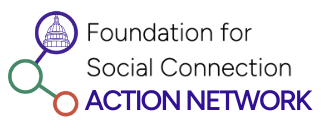The Foundation for Social Connection recently released its third SOCIAL Framework Sector Report: Work, Employment, & Labor (WEL), which focuses on advancing social connection through work. The report presents evidence-based policies and practices to foster social connectedness and address SIL for workers and leaders. It also identifies future areas of research and explores untapped policy opportunities to advance social connection through work for society at large. As a part of the report’s development, the Foundation convened a subcommittee of researchers and expert practitioners, led by Jessica Grossmeier, PhD and Karen Moseley. Drawing upon their wealth of experience in this field, their co-leaders have written the following opening letter which highlights the compelling case for investing in social connection strategies and aims to inspire organization leaders to take action. Read the full WEL Sector Report, access the summary Guide for Leaders, and register for the webinar here.
When the Business Roundtable announced a new purpose statement in 2019, 181 CEOs, representing every state and 37 million employees, made a commitment to lead their companies for the benefit of all stakeholders—employees, communities, suppliers, customers, and investors.(1) This paradigm shift from shareholders to stakeholders signaled a new era of labor as a company’s most valuable asset and a call to action for employers to invest in their employees through fair compensation, training and education, and by “fostering diversity and inclusion, dignity and respect”.(1)
With the national crises of a viral pandemic and social and political unrest, employers are now acutely aware of the impact of health, especially mental health, on their workforce. While digital media can connect us via countless channels, we often still feel lonely. Recent studies show loneliness has morbidity and mortality equivalencies to obesity and smoking, and social isolation is undoubtedly correlated with these physical maladies as well as mental health and overall well-being.(2, 3) The positive benefits of improving social connection within the workforce compound the value added for employers taking action to address social isolation, loneliness, and social connection. Fostering social connection and related experiences of trust, belonging, and social support can mitigate the aforementioned costs and result in significant gains for employers, including improvements in worker productivity, performance, and well-being.(4)
We are pleased to offer this report with a focus on the unique role employers can play in assessing the issues and advancing solutions. What kind of employer leadership can we catalyze that breaks through the stigma of loneliness? How can we take a multi-faceted approach to create work processes, policies, facility design, leadership behaviors, and team interactions to foster stronger social connections? In what ways can organizations positively influence the social connectedness of communities and their customers through their products, services, and programs? You’ll find examples from Fairbanks Morse Engine, Google, and Inclusivv exhibiting commendable leadership in the ways they foster workforce social connection. As a society, we are all challenged to consider our role in what it will take to make inclusiveness, civility and sensitivity to and support for mental health the best way to do business. As organizational leaders ourselves, we have attempted to model the authenticity and vulnerability needed by all leaders by publicly telling our own stories.
As you review the recommendations and guidance offered in this report, consider the actions you and your organization can take to mitigate the risks of social isolation and loneliness and advance stronger social connections for all workers.
Jessica Grossmeier, PhD, is the Author of Reimagining Workplace Well-Being: Fostering a Culture of Purpose, Connection, and Transcendence.
Karen Moseley is the Founder and CEO of the Health Enhancement Research Organization (HERO).

